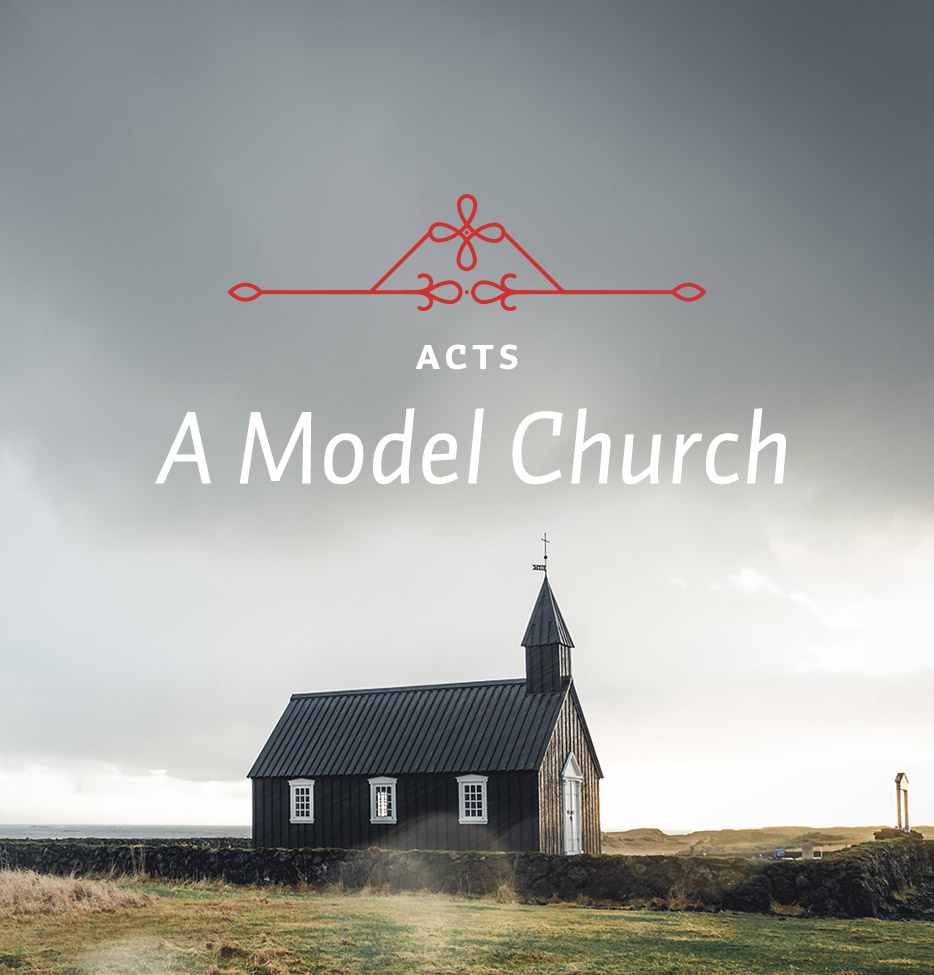As we saw in yesterday’s study, an evangelical, Spirit-filled, Bible-oriented church should offer many ways for people to get to know the Bible, but primarily through preaching.
The second thing we need is fellowship. Not only did they devote themselves to the apostles’ teaching, the early church also devoted itself to fellowship at many levels. John R. W. Stott, who writes on this at one point, says that “the word ‘fellowship’ was born on the Day of Pentecost”1 This is because Christian fellowship means “common participation in God,” and it is this that had drawn the early Christians together. The Apostle John wrote, “We proclaim to you what we have seen and heard, so that you also may have fellowship with us. And our fellowship is with the Father and with his Son, Jesus Christ” (1 John 1:3).
The Greek word for “fellowship” is koinonia, and it has to do with holding something in common. It is interesting, for example, that the form of the Greek language spoken in the time of the apostles was not classical Greek but a kind of Greek called Koine. This is from the same root as the word for “fellowship,” and it means “common.” The Greek of the apostles’ time was “common Greek” because it was the universal language of the day. It is that language in which the New Testament is written. The fellowship of the church was a common fellowship because of the great spiritual realities the believers shared in together.
If you have a fellowship that you think is so special (perhaps with only two or three of you) that you do not want anybody else to be part of it, then you had better question whether it is really the fellowship of the people of God. These early Christians all participated together in the one great fellowship of the church because, by definition, they had all participated in God the Father and in Jesus Christ. They were one in God. So because they were one in Jesus Christ and in God the Father, they quite naturally participated in a common life and shared everything with one another.
Fellowship with God and true fellowship with man go together. That is why John said, in the verse I cited a moment ago: 1) we want you to have “fellowship with us” and 2) “our fellowship is with the Father.” Some people have said (rightly, I believe) that the stronger your vertical fellowship is, the stronger your horizontal fellowship will be. If you find yourself out of fellowship with God, you will begin to find yourself out of fellowship with other Christians. You will say, “I don’t really like to be with other Christians very much. They all seem to be hypocrites.” You will begin to drift off. But if you come close to God, you will inevitably find yourself being drawn close to other Christians. And it works the other way, too. If you spend time with other Christians, if you share a great deal with them, that fellowship will help to draw you closer to the Father.
When we talk about our participation in God, we are talking about a “sharing in.” But this “sharing in” also results in a “sharing out.” In other words, these Christians, who enjoyed their close fellowship, inevitably shared what they had with one another.
In yesterday’s study I gave a brief definition of the word koinonia, pointing out that it is based on the idea of having things in “common,” “participating in something together,” or “sharing.” It is a continuation of this same study to note that koinonia has also given us a variant word closely related to it, koinonikos, which means “generous.” This is important, of course, because those who share in God inevitably share in God’s nature which includes generosity, and they are generous with those around them. Verses 44 and 45 read, “All the believers were together and had everything in common. Selling their possessions and goods, they gave to everyone as he had need.”
Because their generosity extended to the sharing of their goods, some have regarded this as a biblical endorsement of communism. It is not communism. In fact, it is the opposite of communism. Communism is a sharing of goods certainly. But it is an enforced sharing on the basis that no one has the right to own anything. Communism is compulsory. It is not optional, and therefore it has nothing whatever to do with generosity.
Two chapters farther on, in chapter 5, we have the story of Ananias and Sapphira, who sold a piece of property and kept part of the proceeds. Then they brought the rest, gave it to the apostles and said, “Here, we have sold our property. We are giving everything to the Lord.” They were struck dead for their deception. But notice: they were not struck dead because they did not give up everything. It was because they pretended that they were giving up everything when, as a matter of fact, they were not. Peter, who presided on this occasion, made this clear when he responded to them. “How is it that Satan has so filled your heart that you have lied to the Holy Spirit and have kept for yourself some of the money you received for the land? Didn’t it belong to you before it was sold? And after it was sold, wasn’t the money at your disposal? What made you think of doing such a thing? You have not lied to men but to God” (vv. 3-4). If Ananias and Sapphira sold their property, it was because they wanted to, not because it was required. The words of Peter actually endorse the right of private property.
1John R. W. Stott, “The Sovereign God and the Church,” in Our Sovereign God: Addresses Presented to the Philadelphia Conference on Reformed Theology 1974-1976, ed. James M. Boice (Grand Rapids: Baker, 1977), 160.






